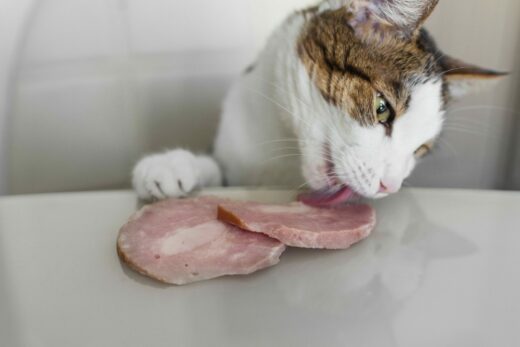All types of cheeses such as cheddar, mozzarella, and camembert are a favorite of a great many people. You might not have a favorite yet, but a popular question on every cat lover’s mind is can cats eat cheese?
If you are a cat owner, this question may have crossed your mind at some point as well.
With so many different varieties out there, it might seem like cats should be able to enjoy some of these choices as well.
Unfortunately for our feline friends, this is not a straightforward answer as we would like, but with a little research and inspection, it is possible to find out whether or not cats should eat cheese and what might happen if they do.
Keep Reading!
Nutritional Profile of Cheese

Cheese is made from milk and comes in a variety of types. It is a high-calorie food with a fair amount of fat and sodium, but it also contains calcium, protein, and vitamins.
A 28-gram slice of cheddar cheese will give 113 calories. Additional nutrition value is listed below.
- Total Fat 9.3 g
- Cholesterol 28 mg
- Sodium 183 mg
- Total Carbohydrate 0.9 g
- Dietary Fiber 0 g
- Sugar 0.1 g
- Protein 6.4 g
- Vitamin D 0.2 mcg
- Calcium 199 mg
- Iron 0 mg
- Potassium 21 mg
Can Cats Eat Cheese?
As obligate carnivores, their digestive system processes meat perfectly but has difficulty processing other animal dairy products like milk and cheese.
It is important to know that while cheese contains protein, cats do not need it in the same way humans do.
They require meat protein for sustenance and cannot get this from cheese. For this reason, many veterinarians recommend against feeding cats any form of dairy as a regular diet item.





